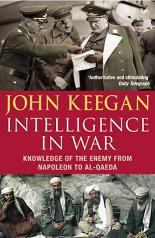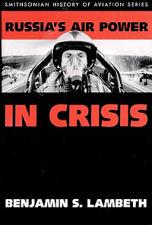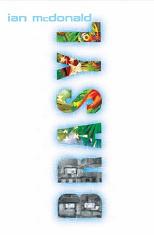No matter how crap I find my reviews the next day, I can’t help but think that at least I’m still doing reviews, rather than ill-disguised hitpieces. The English socalled quality newspapers especially have a nasty habit of abusing their bookreviews; here are two from the supposedly liberal Observer that annoyed me today
The first comes via commenter Dearkitty and is an Observer review of Richard Ingrams’ The Life and Adventures of William Cobbett. What annoyed me especially here was the opening paragraph:
If William Cobbett hadn’t existed, few people today would feel the need to invent him. Best known for Rural Rides, his socio-lyrical tour of England in the 1820s, Cobbett’s early life is a chaos of politics, tangled up in the kind of issues which are world-shattering to those who live through them but forgotten in a generation.
I can’t stand the jocular matey tone in which Cobbett is dismissed here. It also shows an uncanny lack of history to dismiss the cause of parliamentary reform and extended voting rights for the common man as “the kind of issues” that are “forgotten in a generation”. The rest of the review is almost as awful, written to template: “catchy” opening, some discussion of the subject of the book done with not too much accuracy, with less than half the review actually talking about the book itself and never actually coming out in judgement of it.
The other review is more vile and more dangerous, a hatchet job on Noam Chomsky, which “Lenin” neatly dissected.
Here it is the last two paragraphs that got on my tits:
But what I find most noxious about Chomsky’s argument is his desire to create a moral – or rather immoral – equivalence between the US and the greatest criminals in history. Thus on page 129, comparing a somewhat belated US conversion to the case for democracy in Iraq after the failure to find WMD, Chomsky claims: ‘Professions of benign intent by leaders should be dismissed by any rational observer. They are near universal and predictable, and hence carry virtually no information. The worst monsters – Hitler, Stalin, Japanese fascists, Suharto, Saddam Hussein and many others – have produced moving flights of rhetoric about their nobility of purpose.’
Which leads to a question: is that really what you see, Mr Chomsky, from the window of your library at MIT? Is it the stench of the gulag wafting over the Charles River? Do you walk in fear of persecution and murder for expressing your dissident views? Or do you make a damn good living out of it? The faults of the Bush administration will not be changed by books such as Failed States. They will be swept away by ordinary, decent Americans in the world’s greatest – if flawed and selfish – democracy going to the polls.
There are several things to object to here: the deliberate and stupid misreading of Chomsky’s argument in the worst possible light, the histrionic fashion in which he accuses Chomsky of hypocrisie –“is that really what you see, Mr Chomsky” — “Is it the stench of the gulag wafting over the Charles River?” — “Do you walk in fear of persecution and murder for expressing your dissident views? Or do you make a damn good living out of it?” and finally, the great slobbering sucking up of those last two sentences. It fair turns the stomach.
It turns the stomach even more so, because it is the Blair defence. Everytime Blair has been confronted by angry members of the public and is held accountable for his actions towards Iraq, he comes out with the same old line, that you are allowed to your opinion because you are living in a country, in which you have the right to criticise your government (nervous hand gesutre, sweaty forehead) and should the people of Iraq not have that right?
Not that anyone is ever convinced by this pap, but it is a nice way to claim the moral high ground and any misdeeds are swept under the carpet – never mind Iraq is in a perpeptual civil war and embassy employees cannot reveal who they work for without being killed, at least the Iraqies are free now. In the same way, as long as Chomsky is not dragged from his office and burned in front of M.I.T., clearly his criticisms of the United States are without ground. Because this great United States is still a democracy and that excuses any and all misdeeds, which will anyway surely be resolved by the voters in the next elections.


